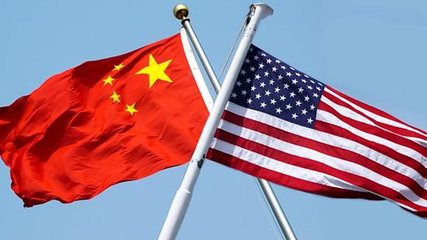All facts add up to the same American approach, to decide whether a company is playing by the book and that sanctions to be imposed are more often than ever closely connected to political purposes. There’s no such thing as rationality, objectivity or impartiality in their dictionary. The US government has stretched its long arms to disrupt the international economic and trading order, threatening enterprises’ interests in various countries.

“Trade war fears have stocks in panic mode as the US is predicted to initiate a long-term trade war with all countries that are trying to steal out technology”, “Trump’s administration’s trade actions and announced intentions are indicative of the wider dysfunction”. With the US going ballistic against the world in international trade, a state of panic has spread in global markets.
The White House is creating a “terror trap” by unilateral trade protectionism to break down the global industrial and value chains. Such a move does not behoove the US as the super power and is not something it can be proud of. Anxiety in the US is obviously growing. Polls conducted by leading media outlets such as the Washington Post show that up to 73 percent of respondents are concerned about trade wars, saying they themselves might have to pay the price.
Industry transformation and the spillover effect through technology transfer are inevitable in a globalized economy, both being advantageous to developed countries. Such practice not only prolongs the time window for technology-led multinational companies to make profits through the gap between relatively backward and standardized technologies but also frees space for R&D applications of these companies' new technologies and indirectly shares R&D costs.
In the global division of labor dominated by multinational companies, the biggest beneficiary of technology spillovers are developed countries, and the United States is a typical case study.
The Chinese government has never mandated that any multinational company transfer technology to Chinese firms. Even in the case of technology transfer, it is a normal and equal business contract as part of joint ventures.

In 2017, China’s external use of intellectual property fees reached $28.6 billion, and the US maintained its top position as a payee. The US government's threat to impose corresponding sanctions and restrictions on China on the grounds of "mandatory technology transfer" is not only groundless, but also has a very negative demonstration effect. Many developing countries achieve industrialization and modernization through normal international trade and investment, which is a basic right.
The US government unilaterally extends domestic law to international affairs and slams sanctions against other countries. Meanwhile, companies that normally practice international trade and investment are exposed to enormous risks and may be the next target of US sanctions.
All facts add up to the same American approach, to decide whether a company is playing by the book and what sanctions are to be imposed are more often than ever closely connected to political purposes. There’s no thing as rationality, objectivity or impartiality in that dictionary. The US government has stretched its long arms to disrupt the international economic and trading order, threatening enterprises’ interests in various countries.
An investment landscape based on the global industrial chain and value chain is the basic law of market economy.
However, the Trump administration swears at the 'waving white flag' label without hesitation and threatens American multinational companies with 'big tax' to press them into returning with capital. Such intimidation and coercion against multinationals has interfered with their normal functioning, distorting and damaging global market economy.
Global economy has forged a pattern of division of labor with in-depth linkages among countries that synchronizes with comparative advantage. By imposing tariff on trading partners, the US government has violated WTO rules. In effect, the tariff targets all companies in all countries that are involved in the global industrial chain. US-funded enterprises that practice in trading partner countries are not immune to the tariffs.
Emergence of tariff and non-tariff trade barriers will slow down new technology application and lead to decline in global productivity and investment. Global industrial chain and value chain function as the pulse of the world economy. Once predicted chaos takes place, it might take years to regain momentum.
The White House is creating a "terror trap" by suppressing legal technology spillovers, and being offside with multinational corporations. It is casting a heavy shadow on the prospects of world economic recovery. As time goes by, more people will be aware of the hazards due to anti-globalization measures taken by the White House.
Repelling US trade bullying, trade hegemony and winning the current battle of multilateralism against unilateralism, free trade against protection and playing by the rules against a super power will serve to maintain the common interests of enterprises and people of all countries as well as lend impetus to the establishment of a more reasonable international economic and trading order.
(Compiled by Dong Feng)


